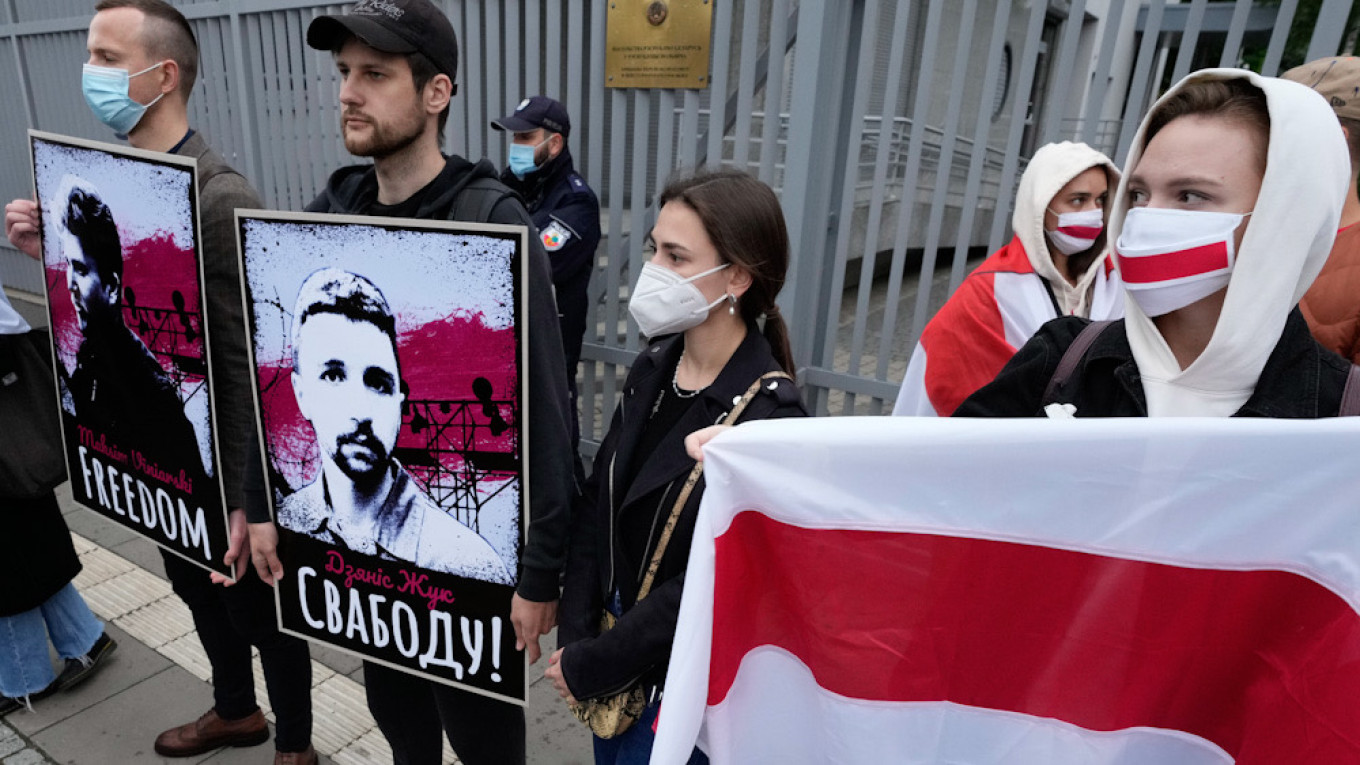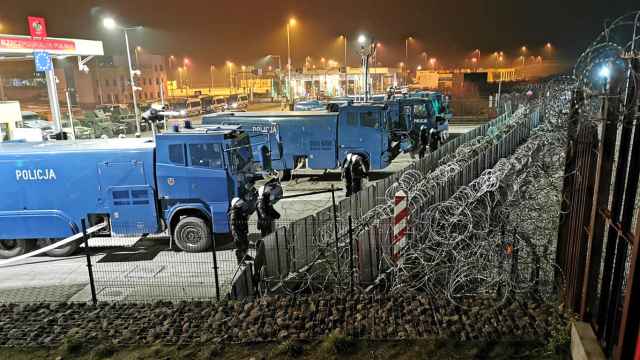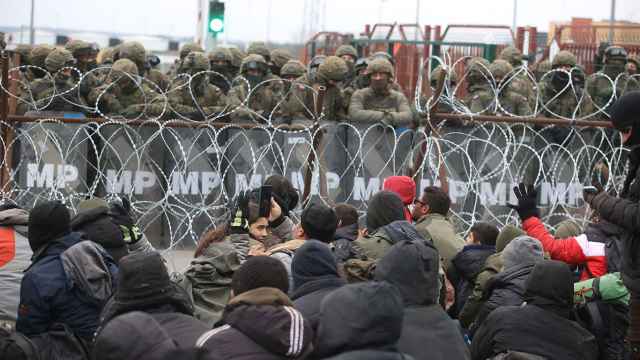EU chief Ursula von der Leyen on Friday warned Belarus President Alexander Lukashenko "it is time to change course" as her executive held out the promise of a three-billion-euro support package if he leaves power.
The European Commission president said the EU's message was twofold: one of support to the Belarusian people — and a warning to Lukashenko.
"No amount of repression, brutality or coercion will bring any legitimacy to your authoritarian regime. So far, you have blatantly ignored the democratic choice of the Belarusian people. It is time to change course," she said.
"When — and we believe it is a case of when, not if — Belarus starts its peaceful democratic transition, the EU will be there to accompany it."
A commission spokeswoman said von der Leyen had written to Belarus's opposition leader Svetlana Tikhanovskaya and other opposition figures "expressing her respect and admiration for the courage and strength of the people of Belarus."
"The president conveyed the EU stands ready to engage in all possible ways to accompany a peaceful democratic transition in Belarus, and outlined in her letter the EU's comprehensive plan of economic support to a democratic Belarus of up to three billion euros ($3.7 billion)," spokeswoman Ana Pisonero said.
The announced investment package is a mix of grants and loans aimed at helping "a future, democratic Belarus to stabilize its economy, reform its institutions to make them more democratic and support economic reforms that increase the country's resilience, growth potential and job creation."
"The EU will activate this plan once Belarus embarks on a democratic transition," Pisonero said.
Expanding sanctions
The proposed support from the EU comes as the bloc aims to ramp up pressure on Lukashenko after the forced landing of an Athens-to-Vilnius Ryanair flight in Minsk on Sunday and arrest of a dissident journalist onboard.
EU leaders have already agreed to ban Belarusian airlines from flying to the bloc and recommended EU-based carriers avoid Belarusian airspace.
Diplomats from the 27 nations are now working on expanding sanctions on Belarus and are eyeing hitting key sectors of the economy to try to undercut Lukashenko's financial backing.
EU foreign policy chief Josep Borrell wrote on Twitter that the three-billion-euro support plan "should be a genuine incentive for the regime to change its course."
Lukashenko, who has ruled Belarus since 1994, claimed a sixth presidential term in last August's vote that the opposition and Western diplomats said was rigged.
Lukashenko's security forces unleashed a brutal crackdown after widespread protests swept the country, jailing thousands and forcing key opponents into exile.
The EU has already slapped asset freezes and visa bans on Lukashenko and 87 other regime figures, but the strongman has shrugged off Western pressure with support from key ally Russia.
Lukashenko was to meet Russian President Vladimir Putin in Sochi on Friday.
A Message from The Moscow Times:
Dear readers,
We are facing unprecedented challenges. Russia's Prosecutor General's Office has designated The Moscow Times as an "undesirable" organization, criminalizing our work and putting our staff at risk of prosecution. This follows our earlier unjust labeling as a "foreign agent."
These actions are direct attempts to silence independent journalism in Russia. The authorities claim our work "discredits the decisions of the Russian leadership." We see things differently: we strive to provide accurate, unbiased reporting on Russia.
We, the journalists of The Moscow Times, refuse to be silenced. But to continue our work, we need your help.
Your support, no matter how small, makes a world of difference. If you can, please support us monthly starting from just $2. It's quick to set up, and every contribution makes a significant impact.
By supporting The Moscow Times, you're defending open, independent journalism in the face of repression. Thank you for standing with us.
Remind me later.






